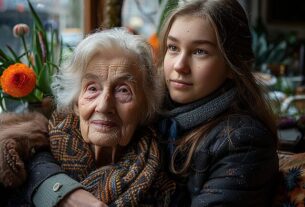Elderly Companion Services provide vital in-home health monitoring, enabling seniors to age in place with independence and quality of life. These services offer well-being check-ins, daily task aid, vital sign tracking, medication management, companionship, and mobility assistance. Choosing the right service requires professionals skilled in geriatric care, communication, and early deterioration recognition. With advanced tools like smart sensors, caregivers track vital signs and recognize subtle health changes proactively, enhancing outcomes and peace of mind for seniors and their families.
In-home health monitoring assistance is a vital service for elderly individuals seeking to maintain independence while ensuring safety and well-being. This article explores the transformative power of Elderly Companion Services, delving into their numerous benefits and the crucial role they play in modern healthcare. We’ll guide you through choosing the right companion, highlighting essential tools and techniques that enhance quality of life for those receiving care. Discover how these services navigate the challenges of aging, providing a support system tailored to individual needs.
- Understanding Elderly Companion Services: Benefits and Role of In-Home Monitoring
- How to Choose the Right Companion for Effective Health Monitoring
- Enhancing Quality of Life: Tools and Techniques for Companions in Home Health Monitoring
Understanding Elderly Companion Services: Benefits and Role of In-Home Monitoring

In-home health monitoring assistance, often facilitated by Elderly Companion Services, is a vital support system for seniors who wish to age in place while maintaining their independence and quality of life. These services offer a range of benefits, from regular check-ins that ensure the well-being of the elderly individual to assistance with daily tasks that can help prevent hospitalizations and institutionalization.
The role of in-home monitoring is multifaceted. It includes monitoring vital signs, administering medications, providing companionship to combat loneliness, and assisting with mobility. Through these services, families can rest assured that their loved ones are being cared for while they enjoy peace of mind knowing that any issues or emergencies will be promptly addressed. This approach not only enhances the elderly person’s safety but also allows them to maintain a sense of dignity and autonomy in their homes.
How to Choose the Right Companion for Effective Health Monitoring

Choosing the right companion for effective health monitoring is paramount, especially for elderly individuals who require in-home care. When selecting an elderly companion service, consider their training and expertise in geriatric care. Look for professionals who understand the unique needs of seniors, including medication management, assistance with daily tasks like bathing and dressing, and the ability to recognize early signs of health deterioration.
Additionally, ensure the companion is patient, compassionate, and communicates effectively. The best companions build rapport and trust with their clients, fostering an environment where the elderly feel comfortable discussing their health concerns openly. Verify references and check for any certifications or specialized training in areas like first aid, CPR, or specific medical conditions to ensure peace of mind and optimal care.
Enhancing Quality of Life: Tools and Techniques for Companions in Home Health Monitoring

In-home health monitoring assistance significantly enhances the quality of life for the elderly, allowing them to stay independent and comfortable in their own homes. Companions playing a vital role in this process are equipped with advanced tools and techniques that facilitate continuous tracking of vital signs and overall well-being. These include smart sensors that monitor heart rate, blood pressure, sleep patterns, and physical activity levels, providing real-time data for early intervention if necessary.
By utilizing Elderly Companion Services, caregivers can proactively address health concerns before they escalate. They receive training in recognizing subtle changes in behavior or condition, enabling them to respond promptly and adapt care plans accordingly. This proactive approach not only improves health outcomes but also fosters a sense of security and peace of mind for both the elderly individual and their loved ones.
In-home health monitoring assistance, facilitated by Elderly Companion Services, significantly enhances the quality of life for seniors. By understanding the benefits and role of these services, carefully selecting the right companion, and employing appropriate tools, we can ensure effective health monitoring. This not only supports independence but also fosters a vibrant and fulfilling daily routine for our aging population.



